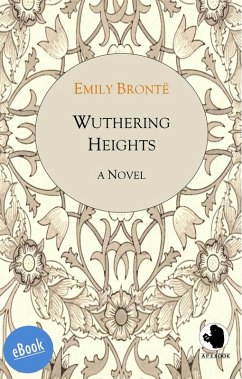"Wuthering Heights" is the only novel of English author Emily Brontë (1818-1848). It was first published in 1847, though under the author¿s pen name Ellis Bell. Mr. Earnshaw finds a presumably orphaned boy on the streets of Liverpool and takes him to Wuthering Heights. There the boy, who is named Heathcliff then, grows close with Earnshaw¿s daughter Catherine. When they have become young adults, there is a deep love between them. But one day Edgar Linton, a young man of higher social status, proposes marriage to Catherine. The young woman makes a fatal decision. Although contemporary critics considered the novel controversial because of its mental and physical cruelty, nowadays "Wuthering Heights" is a classic of 19th century literature. Some argue that the novel is even superior to Jane Eyre, which is also one of the most-loved novels ever. There are several dramatic adaptations of Wuthering Heights, including film, radio, TV, opera and music. "A fiend of a book - an incredible monster [...] The action is laid in hell, - only it seems places and people have English names there." Dante Gabriel Rossetti "A monument of the most striking genius that nineteenth-century womanhood has given us." Clement Shorter "The greatest work of fiction by any man or woman Europe has produced to date." Anthony Ludovici "Emily was inspired by some more general conception. [...] She looked out upon a world cleft into gigantic disorder and felt within her the power to unite it in a book." Virginia Woolf
Dieser Download kann aus rechtlichen Gründen nur mit Rechnungsadresse in A, B, BG, CY, CZ, D, DK, EW, E, FIN, F, GR, HR, H, IRL, I, LT, L, LR, M, NL, PL, P, R, S, SLO, SK ausgeliefert werden.









